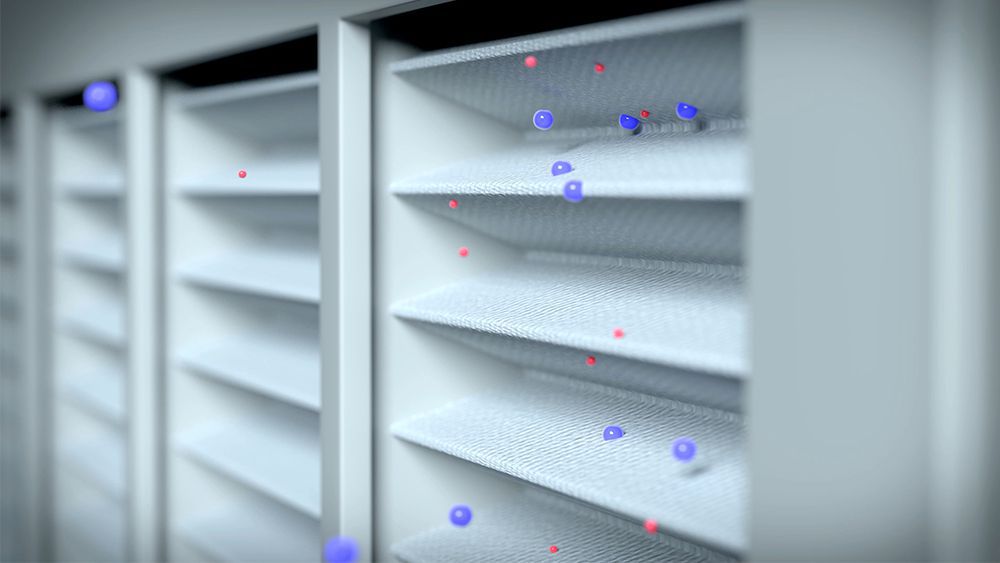What is the MERV Rating of a medium filter?

Understanding the MERV (Minimum Efficiency Reporting Value) rating of a medium filter is essential for assessing its performance in trapping airborne particles. The MERV rating ranges from 1 to 16, with higher values indicating better filtration capabilities. For medium filters, typical MERV ratings range from 8 to 12.
1. MERV Rating Explained
The MERV rating system, developed by ASHRAE (American Society of Heating, Refrigerating and Air-Conditioning Engineers), evaluates the efficiency of air filters in removing particles of varying sizes from the air. Filters with a MERV rating of 8 can capture approximately 70-85% of particles sized 3-10 microns. In comparison, those rated 11 or higher can capture 95% or more of these particles, making them suitable for environments requiring better air quality.
2. Importance of MERV Ratings
MERV ratings help consumers select filters based on their specific air quality needs. Filters with a rating between 8 and 12 are often recommended for residential use, as they provide a balance between capturing allergens and maintaining good airflow. This is critical for HVAC system efficiency, as high-resistance filters can strain the system and increase energy costs.

3. Applications of Medium Filters
Medium filters, typically falling within the MERV 8-12 range, are widely used in both residential and commercial HVAC systems. For instance, a MERV 10 filter can effectively capture pollen, dust mites, and pet dander, making it ideal for homes with allergy sufferers. According to ASHRAE standards, using a filter with an appropriate MERV rating can reduce the presence of airborne contaminants, improving indoor air quality significantly.
Choosing a medium filter with the correct MERV rating is essential for maintaining optimal air quality and HVAC efficiency. MERV ratings of 8-12 are suitable for residential environments, striking a balance between filtration effectiveness and airflow. Always consider your specific needs and environmental factors when selecting a filter.

Relevant Standards and Regulations:
ASHRAE 52.2- Method of Testing General Ventilation Air-Cleaning Devices
ISO 16890- Air Filters for General Ventilation
EN 779- Tests for Air Filters for General Ventilation
EPA Method 201A- Determination of PM10 and PM2.5 emissions
What is a good MERV rating for filters?

Understanding MERV Ratings
MERV, or Minimum Efficiency Reporting Value, measures the effectiveness of air filters. A good MERV rating typically ranges from 8 to 13 for residential use, balancing air quality and airflow. Higher ratings capture smaller particles but may restrict airflow, so it's essential to choose a filter that meets your specific needs.
Importance of MERV Ratings
MERV ratings help consumers select the right filter for their HVAC systems, ensuring optimal air quality and system efficiency.

Choosing the Right MERV Rating
When selecting a filter, consider your environment. For homes with pets or allergies, a MERV rating of 10 or higher is advisable. This ensures better filtration of dust, pollen, and pet dander.
Maintenance and Replacement
Regularly replacing filters is crucial for maintaining air quality. A good practice is to check filters every month and replace them every 3 to 6 months, depending on usage and MERV rating.
What MERV rating is a 30% filter?

MERV Rating for 30% Filters
A 30% filter typically has a MERV rating of around 6 to 8. These filters are effective for capturing larger particles but may not be sufficient for finer pollutants.
Effectiveness of 30% Filters
While they provide basic filtration, higher MERV-rated filters are recommended for improved air quality, especially in homes with allergy sufferers.
Should I use MERV 8 or 10?

1. Comparing MERV 8 and 10:MERV 8 filters are suitable for general use, while MERV 10 filters offer better filtration for allergens and dust.
2. Benefits of MERV 10:Using a MERV 10 filter can significantly improve indoor air quality by capturing smaller particles, making it a better choice for allergy sufferers.
3. Considerations for Filter Selection:When choosing between MERV 8 and 10, consider your specific needs. If you have pets or allergies, MERV 10 is advisable. However, ensure your HVAC system can handle the increased airflow resistance that comes with higher-rated filters.
Is MERV 11 too high?

Evaluating MERV 11 Filters
MERV 11 filters are effective for capturing smaller particles, including mold spores and pet dander. They are suitable for homes with allergy concerns.
Airflow Considerations
While MERV 11 filters provide excellent filtration, they may restrict airflow in some HVAC systems. It's essential to check compatibility with your system.
Conclusion on MERV 11
Overall, MERV 11 is not too high for most residential applications, but regular maintenance and monitoring of airflow are crucial to ensure optimal performance.
Is MERV 14 too high?

1. Understanding MERV 14 Filters
MERV 14 filters are designed for superior filtration, capturing very small particles, including smoke and bacteria. They are ideal for environments requiring high air quality, such as hospitals or homes with severe allergies.
2. Airflow and System Compatibility
While MERV 14 filters offer excellent filtration, they can significantly reduce airflow in standard HVAC systems. It's vital to ensure your system can accommodate such filters without compromising efficiency.
3. Final Thoughts on MERV 14
In conclusion, MERV 14 filters are not too high for specialized applications, but homeowners should assess their HVAC system's capabilities and consider regular maintenance to maintain optimal airflow and air quality.
 +86 18186671616
+86 18186671616 Jason@cleanroomequips.com
Jason@cleanroomequips.com
 MENU
MENU


